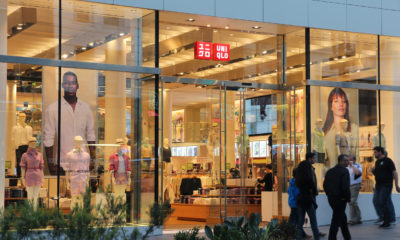Last week, I read an article in Women’s Wear Daily about “Prime Day,” Amazon’s dedicated celebration of its 20th anniversary, which occurs today, July 15. Prime Day will feature promotional deals that will be offered exclusively to its Amazon Prime customers, who pay an annual fee for free two-day shipping and other miscellaneous perks. Always one to love a deal, but not someone who will pay for what I can usually scheme to get for free, I forwarded the date to a friend who is a Prime customer so he can take advantage of all it has to offer.
The premise of an e-commerce holiday felt vaguely similar to another seemingly invented online shopping holiday I recalled: “Singles Day,” the assumed creation of Alibaba, the Chinese e-commerce giant that had the biggest NYSE IPO in global history ($25 billion) back in Sept. 2014. In reference to Singles Day, WWD noted it as a Chinese Holiday, implying it was China’s answer to Black Friday and Cyber Monday. I recall reading an article on Singles Day when Alibaba was first introduced in 2009. At the time, I remember thinking it was weird to invent a holiday as an excuse for a sale. It seemed like a copycat move; even the timing in November was too coincidental, given the renowned U.S. Black Friday shopping hysteria. “Oh, that will never catch on,” I thought. Well, don’t ever take my advice – sales generated on Singles Day in 2014 doubled those in 2013.
Curious about the premise of Singles Day, I did a little Google-powered research and uncovered that it actually is a real thing in China – sort an anti-Valentine’s Day. Dedicated to those unattached souls, or “bare sticks” as they are called, it’s represented by the four “ones” in the official date (Nov. 11). So it would appear Jack Ma (Alibaba’s founder) took advantage of a legitimate yet obscure cultural tradition and used it to build his company into the giant it is today.
Could something like Prime Day yield similar results for Amazon? Not that I ever need a reason to shop, nor am I one to pass up a good deal, but I guess my bigger question: Where is all this going? Amazon has not committed to this being an annual event, but I’m sure if it’s successful, the motivation to make it reoccurring will be strong.
This is not actually a new phenomenon, just a new application. U.S. department stores certainly have big annual sales events that tried-and-true customers look forward to every year. Nordstrom has its Anniversary Sale, and Neiman Marcus has its First Call (and Last Call) sales events. So is Prime Day just the online version of this? Perhaps. But given the globalization of everything, it has me wondering. We’ve seen websites create cultures, e-commerce businesses develop their own currencies (Alipay), and we’ve seen certain website memberships become larger than the population of some countries.
So could it be possible for an e-commerce giant to evolve its own calendar of holidays that globally disrupts the current predictable shopping cycles of individual countries? We’ve already witnessed the Black Friday door-buster tradition creep into European countries, where sales are typically strictly regulated and limited to certain periods of the year. With these types of major shifts, are retailers prepared to deal with the e-commerce equivalent of “Festivus for the Rest of Us” (à la Seinfeld)?
Advertisement
Truth be told, I’ve never understood the Black Friday frenzy, as I typically sequester myself at home in the three days following Thanksgiving to encrust my home in its annual holiday outfitting. Although, I do have to say Cyber Monday makes much more sense to me: With the holiday home makeover complete, my thoughts turn to the necessary gift purchasing that is the culmination of the season. All that aside, I question the ability of an e-tailer to create its own holiday that can cross cultural lines and have enough global appeal to attract an unilaterally agnostic crowd that, despite all other differences, at the end of the day, does have shopping in common. Customers are already shopping at any time and everywhere, and information is more easily being accessed. Retailers entering emerging markets, and overcoming language and currency barriers, could startlingly level the marketplace demand – powerful stuff.
So, Happy Prime Day! I guess time will tell what it foreshadows.
Kathleen Jordan, AIA, CID, LEED AP, is a principal in Gensler’s New York office, and a leader of its retail practice with over 24 years of experience across the United States and internationally. Jordan has led a broad range of retail design projects as both an outside consultant and as an in-house designer. She has led projects from merchandising and design development all the way through construction documentation and administration, and many of her projects have earned national and international design awards. Contact her at kathleen_jordan@gensler.com.


 Photo Gallery2 days ago
Photo Gallery2 days ago
 Headlines1 week ago
Headlines1 week ago
 Headlines2 weeks ago
Headlines2 weeks ago
 Sector Spotlight2 weeks ago
Sector Spotlight2 weeks ago
 Headlines1 week ago
Headlines1 week ago
 Headlines4 days ago
Headlines4 days ago
 Headlines2 weeks ago
Headlines2 weeks ago
 Designer Dozen1 week ago
Designer Dozen1 week ago














